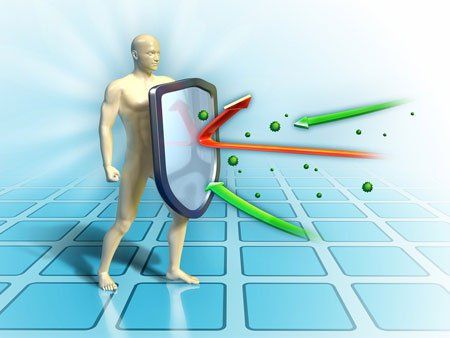This is an automatically translated article.
The article is written by Master, Doctor Mai Vien Phuong - Gastroenterologist - Department of Medical Examination & Internal Medicine - Vinmec Central Park International General Hospital.
In intermittent fasting, there is a change from feeding to fasting and vice versa. This change activates opposing but complementary metabolic pathways. The long-term effects of intermittent fasting reduce insulin resistance, increase heart rate variability, and improve lipid metabolism and gut microbiota.
1. Effects of intermittent fasting on health and aging
Until recently, studies on calorie restriction, intermittent fasting for weight loss, aging and longevity are becoming more and more practical. After nearly a century of research on calorie restriction in animals, the general conclusion is that reducing food intake markedly increases life expectancy. In one of the earliest studies of intermittent fasting, Goodrick and colleagues reported that the average lifespan of rats increased by up to 80% when intermittent fasting was maintained, starting when they were still young. small. However, the magnitude of the effect of calorie restriction on life expectancy and life expectancy varies which may be influenced by gender, diet, age, and genetic factors.
2. What do the studies say?
Meta-analysis of available data from 1934 to 2012 showed that calorie restriction increased life expectancy by 14 to 45% on average in rats but only 4 to 27% in mice. A study of 41 recombinant mouse lines showed wide variation, from extended lifespan to shortened lifespan, depending on mouse strain and sex. However, the study used only one type of calorie restriction (40% restriction) and did not evaluate health indicators, causes of death, or underlying mechanisms. There is an inverse relationship between loss of body fat mass and life expectancy. This means that the mice lost a lot of body fat mass, rapidly transitioning to starvation when put on a restricted diet would also have a reduced lifespan, while for the mice there was less loss of fat mass. will have an extended lifespan.
Two important studies in monkeys with mixed results cast doubt on the association of calorie restriction with health longevity and overall longevity. Research at the University of Wisconsin, showed a positive impact of calorie restriction on health and survival, while a study at the National Institute on Aging found no significance in mortality, despite despite a marked improvement in health. Calorie differences in daily intake, time of intervention initiation, portion size, feeding regimen, sex and genetics may explain the differential effects of calorie restriction on life expectancy. in these two studies. In humans, intermittent fasting interventions reduce obesity, insulin resistance, dyslipidemia, hypertension, and inflammation.

3. How does intermittent fasting affect the body?
Animal and human studies have shown many health benefits of intermittent fasting for weight loss. Intermittent fasting triggers adaptive and evolutionary cellular responses that integrate organs and within organs in a way that improves glucose regulation, increases resistance stress and inhibit inflammation. During fasting, cells activate pathways that enhance intrinsic defenses against oxidative stress, metabolism, and pathways that remove or repair damaged molecules.
4. Intermittent fasting weight loss method produces metabolic changes
Glucose and fatty acids are the main source of energy for cells. After a meal, glucose is used for energy and fat is stored in adipose tissue as triglycerides. During fasting, triglycerides are broken down into fatty acids and glycerol, which are used for energy. The liver converts fatty acids into ketone bodies, which provide the main source of energy for many tissues, especially the brain, during fasting. In the fed state, blood levels of ketone bodies are low. In humans, ketone body levels increase within 8 to 12 hours after initiation of fasting, reaching 0.2 to 0.5 mM levels and are maintained for up to 24 hours, with a subsequent increase of 1 to 2 mM at 48 hours.
In rodents, an increase in plasma ketone concentrations occurred within 4 to 8 hours of the initiation of fasting, reaching above 1 mM within 24 hours. The timing of this response suggests an appropriate fasting duration in intermittent fasting. Ketone bodies are not only used as fuel during fasting, but also signaling molecules that have a major impact on cell and organ function. Ketone bodies regulate the expression and activity of many proteins, molecules that govern health as well as aging.
5. It is possible that intermittent fasting provides health benefits to a greater extent than the benefits of reducing dietary calories alone.
In one trial, 16 healthy participants assigned to an alternate day fasting regimen for 22 days lost only 2.5% of their baseline weight and 4% of their fat mass, but up to a 57% reduction in blood pressure. fasting insulin levels. In another trial, overweight women (about 100 women in each trial) were assigned to follow a 5:2 intermittent fasting regimen or reduce their daily calorie intake by 25%. Women in the two groups lost about the same amount of weight over the 6-month period, but those in the 5:2 intermittent fasting group had increased insulin sensitivity and a greater reduction in waist circumference.
6. Intermittent fasting and stress resistance
Unlike modern humans, human ancestors did not have three main meals and snacks on a regular basis each day, nor did they lead a sedentary life. Instead, they must focus on foraging in areas with sparsely distributed food resources. Over time, humans have undergone evolution that has enabled them to adapt to their habitats, including changes in the brain that allow them to engage in creativity, imagination, language, and physical changes. physical to go beyond hunting. Thus most organs respond to intermittent fasting by allowing the organism to endure the challenge, then restoring homeostasis. Experiencing repeated periods of fasting will form an adaptive response, creating resistance to further challenges.

7. How do cells respond to intermittent fasting?
Cells respond to intermittent fasting by engaging in an adaptive response to stress resulting in increased expression of antioxidant protection, DNA repair, protein quality control, mitochondrial biosynthesis and self-regulating, reducing inflammation. Adaptive responses to fasting and feeding cycles are conserved across different animal phyla. In animals with intermittent fasting, human and brain cells have improved function and resistance to a wide range of aggressions, including metabolic, oxidative, ionic, traumatic and toxic stress. protein properties. Intermittent fasting stimulates autophagy and inhibits the mTOR (mammalian target of rapamycin) protein synthesis pathway. These reactions allow cells to eliminate oxidatively damaged proteins and mitochondria, rebuilding undamaged molecular components while temporarily reducing protein synthesis to conserve energy and molecules. chemistry. These pathways are untapped or inhibited in overeating and sedentary individuals.
Please dial HOTLINE for more information or register for an appointment HERE. Download MyVinmec app to make appointments faster and to manage your bookings easily.
REFERENCES:
Do Van Dung. Intermittent fasting affects longevity and health. Medicine Ho Chi Minh City. Year 2020 - Episode 24 - Number 1 . Schiff W (2011). Nutrition for healthy living, 2nd ed. New York: McGraw-Hill. Chiang Z (2018). Eat Breakfast Like a King. URL: https://www.diabetes.org.sg/resources/0412-eat.pdf.














